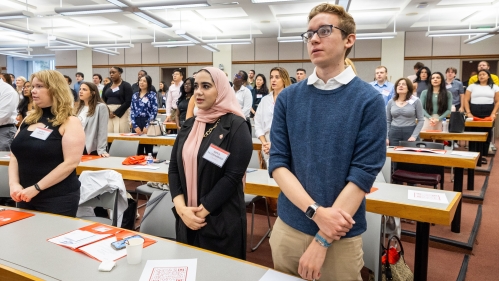
Entering Class Orientation
The 2026 Entering Class Orientation will take place during the week of August 17th. More information will become available in June. The prior year's Orientation schedules can be found below for reference. Please know that these are purely informative and don't reflect the dates and times of the 2026 Orientation.